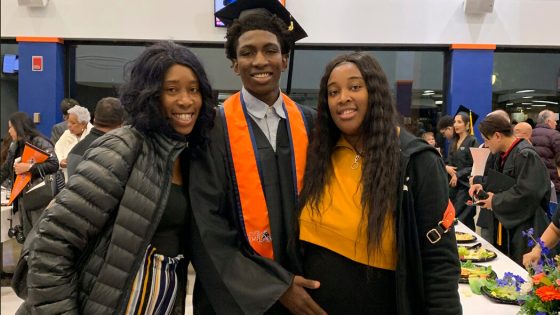Chicago police officers killed a 26-year-old man during a traffic stop last month, firing an estimated 96 shots after he fired first and wounded an officer, according to the city’s Civilian Office of Police Accountability.
The office on Tuesday released body-camera videos and other materials related to the fatal shooting of the man, Dexter Reed, Jr., as it continues to investigate the officers’ use of deadly force.
Here’s what happened.
According to Andrea Kersten, the office’s chief administrator, five plainclothes officers who were assigned to a tactical unit and traveling in an unmarked vehicle stopped Mr. Reed at about 6 p.m. on March 21. Ms. Kersten said the “purported reason” for the stop was that Mr. Reed was not wearing a seatbelt.
After stopping Mr. Reed, officers surrounded his vehicle and began giving him verbal commands, Ms. Kersten said. When Mr. Reed did not comply, officers pointed their guns at him while continuing to shout commands, she said. Less than a minute later, “an exchange of gunfire occurred, leaving Mr. Reed dead and an officer shot in the forearm,” she said.
“Preliminary information and available evidence appears to confirm that Mr. Reed fired first, striking one officer,” Ms. Kersten said at a news conference on Tuesday. “The same information also confirms that four different officers returned fire approximately 96 times at Mr. Reed, including after he exited his vehicle and while he was lying on the ground.”
The officers fired the shots in 41 seconds, the office said. Mr. Reed was taken to a hospital, where he was pronounced dead. A gun was found on the front passenger seat of his vehicle, the office said.
Questions remain about force and a seatbelt violation.
In a letter to Superintendent Larry Snelling of the Chicago Police Department that was dated April 1, Ms. Kersten said that “the available evidence calls into question” whether Mr. Reed was truly pulled over for not wearing a seatbelt.
“Specifically, COPA is uncertain how the officers could have seen this seatbelt violation,” given their location and the “dark tints” on the windows of Mr. Reed’s vehicle, she wrote.
Ms. Kersten said the evidence also indicated that all four officers fired after Mr. Reed exited his vehicle without his gun. She said the 96 shots raised “serious questions about the proportionality of their use of deadly force.”
One officer in particular, she said, fired at least 50 times, including three shots while Mr. Reed lay motionless on the ground. The more than 40 seconds of shooting, she said, gave three of the four officers time to reload.
“This provided the officers with ample opportunity to reassess the situation, but they continued to use deadly force,” Ms. Kersten wrote to Superintendent Snelling. “Based on the totality of the available evidence, COPA has grave concerns about the officers’ ability to assess what is a necessary, reasonable, and proportional use of deadly force.”
What’s next in the investigation?
The Chicago Police Department said that four officers were placed on administrative duties for 30 days, as is the case in all police shootings.
“We cannot make a determination on this shooting until all the facts are known and this investigation has concluded,” the department said in a statement.
Kim Foxx, the Cook County state’s attorney, said that her office was just beginning its review of the evidence to determine if criminal charges would be warranted.
Videos show an exchange of gunfire.
Body-camera and surveillance videos show officers in an SUV with flashing blue lights stopping Mr. Reed’s vehicle. The videos show officers surrounding Mr. Reed’s vehicle and ordering him to roll down his window.
After rolling the window down, he rolls it up partway. One officer tries to open the driver’s side door by jiggling the handle and orders Mr. Reed to unlock and open the door, as that officer and others draw their guns.
After multiple shots are fired and officers are seen reloading, Mr. Reed can be seen lying on the ground, behind his vehicle. Video shows the injured officer, who was near the passenger side of Mr. Reed’s vehicle, recoiling as the shots ring out.
“Shots fired,” the officer says. “I’m shot. I’m shot.”
Mr. Reed’s family questions the officers’ actions.
Andrew M. Stroth, a lawyer for the Reed family, said the family was asking the Chicago police to disband tactical units that he said have been “terrorizing” residents. He said he was also asking for criminal indictments against some of the officers.
He called the initial traffic stop unconstitutional.
“This family doesn’t want this to happen to anyone else,” Mr. Stroth said, adding: “How many more Black and brown young men need to die before this city will change?”
Mr. Reed helped lead his high school basketball team to a regional championship and was a student athlete in college, where he earned an associate degree, Mr. Stroth said. He hoped to become a broadcaster.
“We just want answers,” Porscha Banks, Mr. Reed’s sister, said at a news conference, adding: “He was a son. He was a brother. He was an uncle. He had loved ones. He was somebody very important.”
Source Agencies



